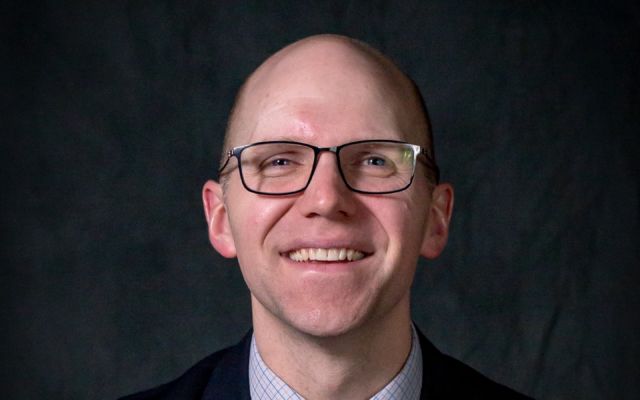
“The aim of education . . . is to guide man in the evolving dynamism through which he shapes himself as a human person—armed with knowledge, strength of judgment, and moral virtues—while at the same time conveying to him the spiritual heritage of the nation and the civilization in which he is involved, and preserving in this way the century-old achievements of generations.”— Jacques Maritain
Faculty Information
Additional Faculty Information for Benjamin Beier
Education
B.G.S. in English and History, University of Kansas, 2004
M.A. in English, University of Dallas, 2008
Ph.D. in English, University of Wisconsin – Madison, 2013
Fellowships
Center for Thomas More Studies
Publications
Anthropology through Analogy: Thomas More’s Body Metaphors in ‘De Tristitia Christi.’
Moreana, 52, (June 2015): 83-94.
The Art of Persuasion and Shakespeare’s Two Iagos.
Studies in Philology, 111.1, (Winter 2014): 34-64.
‘Colour’ that Fails ‘To Set’: Unethical Persuasion and the Nature of Rhetoric in More’s History of King Richard III.
Moreana, 49, (December 2012): 189-212.
The Subordination of Humanism: Young More’s ‘Profitable’ Work, The Life of John Picus.
Moreana, 47, (June 2010): 23-44.
Review of Thomas More: Why Patron of Statesmen? Edited by Travis Curtright, Fellowship of Catholic Scholars Quarterly, 38.3, (Fall/Winter 2015): 53-55.
Review of James V. Schall’s The Classical Moment.
Saint Austin Review, 15.4, (July/August 2015): 42.
Review of Colin Burrow’s Shakespeare and Classical Antiquity.
Ben Jonson Journal, 22.2, (2015): 295-300.
Absence of Evil: The Surprising Augustinian Grammar of The Great Gatsby.
Touchstone: A Journal of Mere Christianity, 27.5, (September/October 2014): 20-22.
Jonson’s ‘To Penshurst’: A Poem in Which to Dwell Profitably.
Saint Austin Review, 12.3, (May/June 2012): 9-11.
Biography
I am delighted to teach in the Education Department at Hillsdale College. My formal studies in English literature and classical rhetoric prepared me well for our department’s unique emphasis on classical education, as well as our efforts to form future teachers and administrators for classical schools and to impart to them a rich vision of classical education through the study of the seven liberal arts, philosophy of education, and a liberal arts teacher apprenticeship.
I continue to study and write about those figures—like Shakespeare, Aristotle, and Thomas More—who first captivated me and set me on the path to a Ph.D. and life of teaching, and whose words, to borrow from a favorite Shakespearean character, seem almost to have “no bottom.” Yet, one of the great joys of Hillsdale is that my students and colleagues challenge and teach me every day not only about these matters of specialty, but also about so many other facets of the theological and philosophic inheritance, which traces to Jerusalem and Athens, of which the College is a steward.
In my classes, I seek to stir students to wonder and to accompany them in the pursuit of wisdom. Not only do I seek to sharpen their intellects for the pursuit of truth, but I also attempt to use literature, with its vivid representation of virtues and vices, to cultivate indirectly students’ desire to be virtuous and to fill their minds with images worthy of emulation in their own lives.
When I am not on campus, you are likely to find me with my family—among other things—reading a good book aloud, enjoying music, or rooting on Kansas City’s sports franchises.